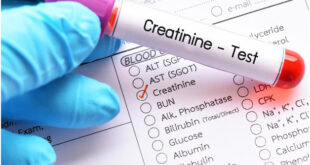What is Non-Small Cell Lung Cancer
Lung cancer is of two types of small cell lung cancer and non-small cell lung cancer. Most common among both of them is NSCLC, which accounts for 85 percent of lung cancers and grows slowly and is dangerous in comparison to small cell lung cancer. Most of the people developing it are over 65 years of age. It is more likely to occur in active and passive smokers.

What are the Causes of Non-Small Cell Cancer
The exact causes of this disease are not known. But it is more common in smokers or in those who have lots of exposure to smoke. Thus, smoking is considered responsible for 90 percent of lung cancer, depending upon the number of cigarettes smoked in a day. However, people who do not smoke may also develop non-small cell cancer. It may also run in families.

Other causes that are likely to cause non-small cell lung cancer are:
- Radon
- High level of air pollution
- Formaldehyde and chloride containing products
- Preservatives, paints, pigments, and certain alloys
- Chemicals like Uranium, coal products, gasoline, mustard gas, beryllium, vinyl chloride, diesel exhausts and nickel chromates.
- Drinking water that contains a high level of arsenic
- Radiation treatment for breast or chest
- Asbestos
- Metal and mineral dust
- Air pollution
- HIV and AIDS
What are the Symptoms of Non-Small Cell Lung Cancer
The worst part is in the early stages, there may not be any symptoms and thus many a time disease is mistaken for a collapsed lung, pneumonia, and other illness.
Symptoms that are displayed include:
- Coughing that gets worse
- Chest pain that is more on cough, hiccups, taking deep breaths or coughing
- Hoarseness of voice
- There are raspy, harsh sounds of breathing
- Wheezing
- Weight loss
- Little appetite
- Coughing may contain mucus or blood
- Shortness of breath
- Weakness and tiredness
- Lung problems, for example,lasting pneumonia or bronchitis.
Spreading of cancer to other body parts causes:
Bone pain
- A headache
- Dizziness
- Balance problems
- Numbness in leg and arms
- Weakness
- Yellow eyes and skin
- Eyelid drooping
- Nail problem
- Face swelling
- Pain in the joints
- Pain in the shoulders
The above symptoms may be due to other less serious diseases. Thus it is very important to talk to your doctor and have a proper diagnosis before assuming anything.
Diagnosis of non-small cell lung cancer
First of all, your doctor may ask you certain questions regarding the first symptoms you noticed, If you have a cough or suffer from wheezing, tiredness or any kind of any pain. Things and conditions that aggravate your symptoms. Your occupation, Family history, history of any disease or treatment. You will also be asked if you smoke or not. If yes, how much you smoke? And for how long?
After this physical examination is performed and tests are conducted. With the help of a stethoscope, your doctor will listen to your chest.
Imaging tests that help your doctor to diagnose tumours inside the lungs and the spread of cancer include:
- X-rays
- MRI
- Ultrasound
- PET scans
- CT scans
- Sputum cytology is conducted to check the coughed mucus for the cancer cells.
- Thoracentesis- It is a sampling of the fluid that has been building up around the chest.
A biopsy is also performed where a part of the tissue is removed and is examined under the microscope. Ways to conduct biopsy are:
- Fine-needle aspiration biopsy
- Bronchoscopy combined with biopsy
- CT-scan-directed needle biopsy
- Endoscopic oesophagal ultrasound (EUS) with biopsy
- Mediastinoscopy with biopsy
- Open lung biopsy
- Pleural biopsy
In the case biopsy shows cancer, some more imaging tests are conducted to see how big the tumouris and to know its spread according to which it is divided into five stages:
Occult stage-
Where sputum or lung fluid contains cancer cells, but doctors are unable to locate where the cancer is in your lungs
Stage 0 –
where cancer hasn’t spread beyond the lining of the lung
Stage I –
There is a small tumour in one lung, which has not yet spread to the lymph nodes
Stage II –
There is a large tumour in one lung and has spread to some nearby lymph nodes.
Stage III –
cancer has spread too far away lymph nodes along with nearby tissues
Stage IV –
cancer has spread to both the lungs, of the fluids that are present around the lungs and to other body organs.
Treatment of Non-Small Cell Lung Cancer
Early diagnosis of the disease is found beneficial in curing or treating the disease. Treatmentis done in two ways.
The treatments depend on the spread of cancer and combination of treatments may be suggested
In the early stage, surgery is recommended.Chemotherapy drugs are given orally or intravenously before the surgery, after surgery or both before and after the surgery to kill the cancer cells as well as to stop the growth of new cells. In cases where cancer has spread outside the lungs chemotherapy alone is given. It is very important to prevent the complications before and after chemotherapy.
If surgery is not possible radiotherapy is given along with chemotherapy. Also, radiotherapy is given to kill the cancer cells remained after the surgery. It is very important to control the symptoms during and after the radiation. To relieve the symptoms of laser therapy and Photodynamic therapy is given.
Besides the above treatment, the diet plan recommended to the patient should be followed strictly. The prognosis of the disease depends on the stage of cancer detected. Stage 1 and 2 show the highest cure and survival rates, Even some cases of stage 3 non-small cell cancer has been cured. In the case of Stage 4 chemotherapy has been able to prolong life along with improving the quality of life.
Dr. Ritu Kumari Gupta: Professionally a homeopathic doctor and a dietician Dr. Ritu Kumari Gupta is passionate about writing health and parenting blogs. She believes in holistic approach towards health and well being.
 Health Beauty Tips
Health Beauty Tips







